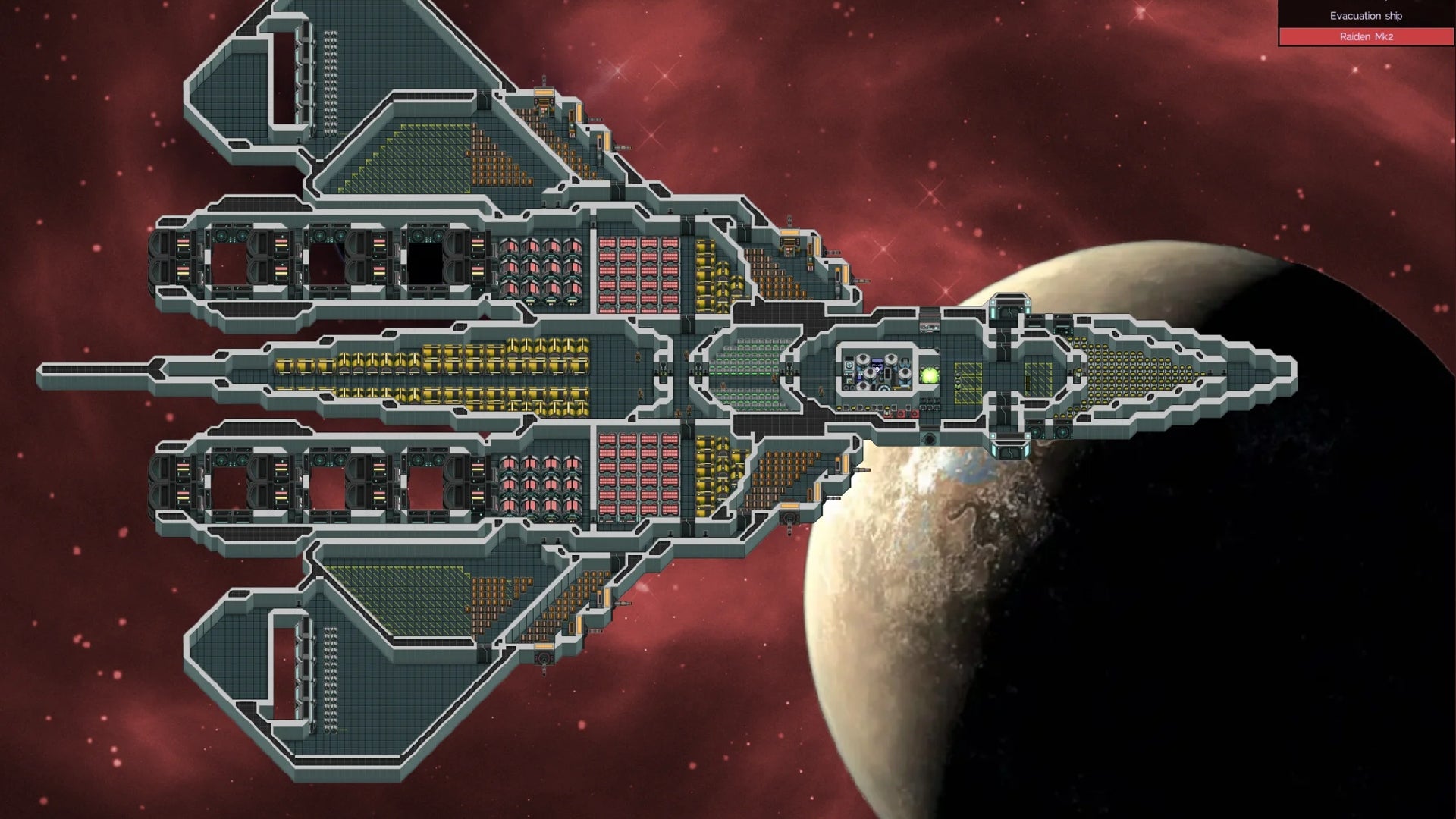Products You May Like
The Last Starship, the new game from the developers of Prison Architect, is currently in the earliest stages of early access. Its latest update is named “Alpha 2” to help make that clear. Released this past week, it expands the industrial and manufacturing aspects of the spacefleet simulator.
As always, Introversion’s Chris Delay and Mark Morris show the new features in detail in the latest update video:
If you haven’t got an hour to spare, there’s a full changelist in text form on Steam. In summary, the update adds new resources and equipment for gathering or creating those resources. One example shown in the video above are “Metreon gas clouds”, found randomly in outerspace, which can be collected by a new Gas Collector device, refined by a new Refinery device, and then further processed by the new Chemical Lab into fuel or explosives.
You can also now transfer resources, crew, drones and equipment between different ships within your fleet, either by sending drones across the inky blackness of outerspace or by docking your ships together.
There are a lot of other new features, but I’ll mention just one more: you can now choose from several game modes and starting conditions when beginning The Last Starship. The previously default mode in which you are pursued by a deadly Anomaly is now called “Survival”, and it’s joined by a new “Free Roam” mode that removes the Anomaly entirely in favour of a “more chilled experience”.
The Last Starship will remain in early access “for several years”, and currently costs £25/$30 from Steam.
